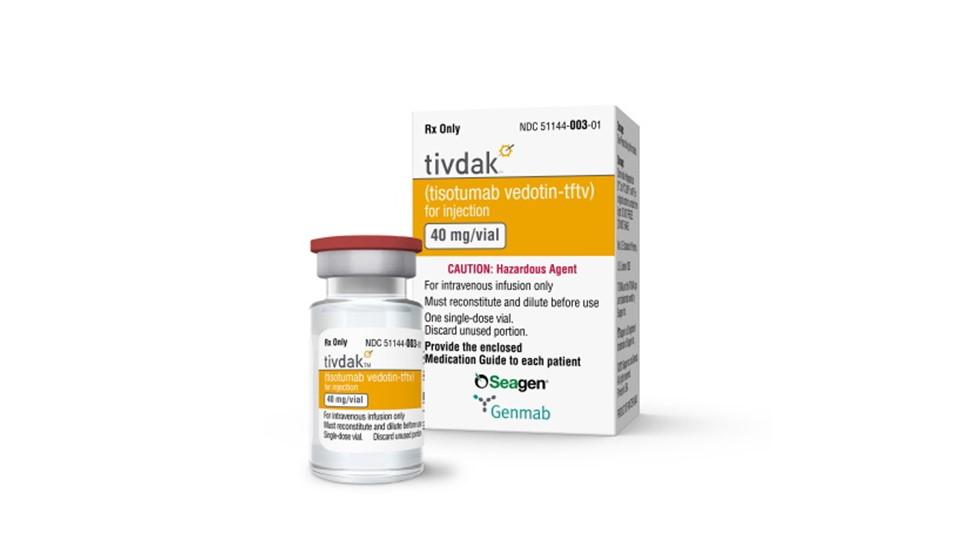Tivdak boosts survival in advanced cervical cancer

Seagen and Genmab's antibody-drug conjugate Tivdak has been shown to improve overall survival when used as a second-line monotherapy for recurrent or metastatic cervical cancer, confirming its role as an alternative to chemotherapy.
The new data from the phase 3 innovaTV 301 study will be filed with the FDA in the hope of converting the accelerated approval for Tivdak (tisotumab vedotin) for women with advanced cervical cancer that has progressed on or after first-line chemo – originally granted in 2021 – into a full license.
The results will also allow Seagen to press on with international regulatory filings for Tivdak, which is its fourth approved product.
The full data hasn't been revealed yet, but, according to Genmab and Seagen, the study's independent data monitoring committee determined that the OS data crossed a pre-specified threshold for efficacy at an interim analysis.
Secondary endpoints, including investigator-assessed progression-free survival (PFS) and the objective response rate (ORR) were also improved compared to chemo, with all three results showing statistical significance, while side effects were in line with earlier studies of the drug.
At the moment, women who progress after first-line chemotherapy are often treated with cancer immunotherapies, such as Merck & Co's PD-1 inhibitor Keytruda (pembrolizumab).
However, approved therapies for this group of patients result in limited objective response rates of typically less than 15% and median OS ranging from six to 9.4 months, so the data from innovaTV 301 will be keenly anticipated by patients and oncologists.
"Tivdak is the only US Food and Drug Administration-approved therapy in second-line recurrent or metastatic cervical cancer regardless of biomarker status, tumour histology, and prior therapy," pointed out Roger Dansey, Seagen's chief medical officer.
"Demonstrating a survival benefit with the results of innovaTV 301 is a critical milestone in our efforts to ensure more adults living with advanced cervical cancer have an approved treatment option," he said.
The news is also a boost to Pfizer, which is in the throes of trying to get regulatory approval for its $43 billion acquisition of Seagen. The big pharma has previously said it expects Seagen's products to contribute $10 billion in revenue by 2030.
Analysts vary on the potential of Tivdak, but some have predicted it could top $1 billion if it can move into first-line treatment of cervical cancer – and trials for that are already underway – as well as other potential indications including colorectal, lung, pancreatic, and head and neck cancers.













